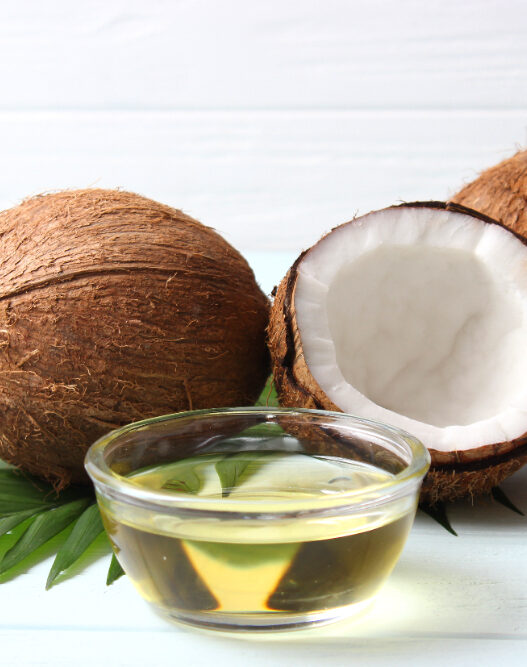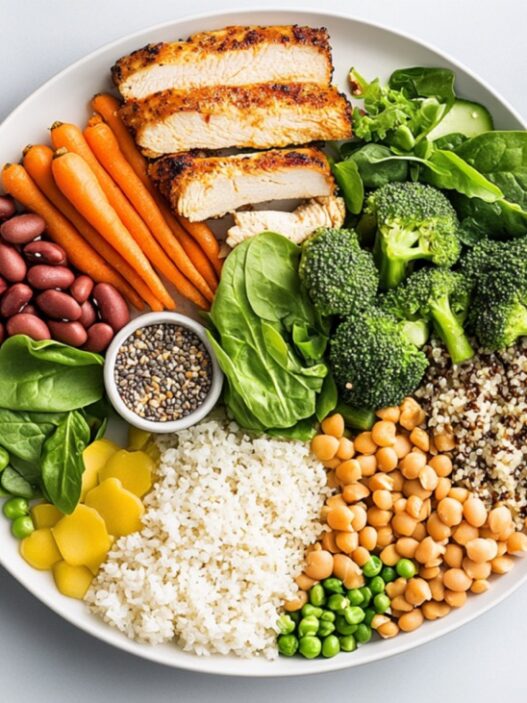Check out the protein requirements, whey protein, whey protein isolate vs concentrate, several benefits of the same, and who should not consume protein supplements.
Protein is a macronutrient that is essential to building muscle mass and is formed by amino acids. Proteins are not only essential for building muscle but good for making hair, blood, connective tissue, antibodies, hormones, enzymes, etc. For getting used by the body, proteins get metabolized into amino acids. A diet deficient in essential amino acids will compromise the function of protein in the growth of tissues or in maintaining our health. Adding more protein to your diet helps in weight loss, and belly fat loss boosts metabolism and reduces muscle loss.
What is the minimum recommended protein for normal adults?
The current International Recommended Dietary Allowance (RDA) for protein is 0.8-1g per kg of body weight irrespective of age. These recommendations refer to barely the minimum amount of protein required for maintaining your health if you have a sedentary lifestyle. However, if you are physically active and exercising or hitting the gym daily or going for regular walks, this requirement is much more, almost double the minimum daily requirement (1.5-2g/kg body weight daily). On top of it, if you are regular in doing High-Intensity Interval Training (HIIT) at the gym, you need a much higher protein requirement.
A misconception amongst most people is that protein is only required by bodybuilders, sportspeople or athletes, or those looking for weight loss which is not true. Every person needs the minimum recommended protein as per their body weight and even more if they are doing regular physical activity. Protein requirement is also much higher for pregnant and lactating women.
Are we meeting the protein requirements of our diet? What about a vegetarian diet?
So, the question arises are we even meeting our daily requirements of protein? The problem is even more if you are a vegetarian.
If you are consuming protein from an animal source like eggs, meat, fish, poultry, etc. which is a complete protein and contains all required essential amino acids, but it has concerns related to the excess amount of saturated fats and cholesterol consumed that may not be good for your heart and health in general. The vegetarian sources of proteins, on the other hand, lack one or more of the essential amino acids so they may not be sufficient to fulfil all your body requires.
How do you meet your daily requirement for protein?
A survey revealed that a large Indian population is at risk of multiple nutrient deficiencies, including protein. Though it is best to take protein from a diet including dairy products, yoghurt, animal protein, and pulses, are we taking sufficient quantities to even meet the essential needs? Protein should comprise about 25% of your plate.
Even if one takes say a glass of milk (6g), 2 eggs (12g), and a big bowl of lentils (10g), you will fulfil only less than half of your daily protein intake. And if you are a vegetarian and physically active, your daily requirement is so much higher. It would not be practically possible for us to consume a large amount of milk and so many bowls of lentils.
Protein intake and COVID-19
Indian food is highly protein deficient and high in carbohydrates, simple sugars, saturated fats, trans fats, and low in fiber and protein. Indian cooking makes it worse by destroying nutrients. Therefore, obesity and type 2 diabetes mellitus are on the rise. Indian food is dependent on wheat and rice which is bad for your glycemic profile.
As we have been evidencing that high blood sugar levels and obesity are important risk factors in higher deaths due to COVID, it is important to control these. In addition, a low intake of protein can cause anemia, vascular dysfunction, and impaired immunity which is not good for coronavirus disease.
Further, the lockdown has also increased the consumption of poor-quality diets at home loaded with saturated fats and carbs. A low-carb diet will bring your sugar levels down and at the same time, a protein-rich diet will help boost your immune system to fight coronavirus disease.
Which protein supplements to add to your diet?
 Various types of proteins are available in the market so one must make responsible recommendations for the best quality protein for adults. If one takes inferior quality protein, it will have issues with digestion. So, it is very important to look at the protein quality by knowing which amino acids it supplies and its digestibility.
Various types of proteins are available in the market so one must make responsible recommendations for the best quality protein for adults. If one takes inferior quality protein, it will have issues with digestion. So, it is very important to look at the protein quality by knowing which amino acids it supplies and its digestibility.
What is Whey Protein?
Whey protein is the protein obtained from milk which has 2 types of protein – Casein (80%) and Whey (20%). Whey protein provides high levels of essential and branched-chain amino acids, vitamins, and minerals. Whey protein helps increase muscle mass and reduce body fat.
So, what is the difference between Whey protein isolate vs concentrate? And which is the best whey protein for weight loss?
Whey Protein isolate vs concentrate
There are 3 types of whey protein available in the market:
- Whey Powder (11-15% protein)
- Whey concentrate (25-89% protein)
- Whey Isolate (90+ protein)
Out of these 3 sources, whey isolates are the purest protein sources if we wish to compare whey protein isolate vs concentrate.
Another advantage of consuming whey protein isolate vs concentrate is that during processing, fat and lactose are removed and hence it can be consumed even by those who are lactose-intolerant. Whey concentrate is a good source of protein and contains more biologically active components.
If your target is weight loss, then out of whey protein isolate vs concentrate, whey isolate may be preferable which is very low in carbs and fats. If cost is the consideration, then one can go for Whey concentrate rather than isolate.
Who should not consume whey protein?
- If you have kidney stones or are suffering from renal disease then you must consult your physician before consuming whey protein. Eating fiber-rich food and drinking 3-4 liters of water daily can also help.
- Some people have trouble digesting whey protein. Generally, these people are also lactose intolerant. Some people do not have sufficient enzymes to digest whey protein properly. So, they need to consult their physician before taking supplements.
There are no other harmful effects of Whey protein. It is completely safe for everyone to consume.
Several Benefits of Whey Protein
- Whey protein contains the amino acid cysteine which enhances a strong antioxidant (glutathione) in the body. Antioxidants have several health benefits and protect us against several diseases
- Whey protein has positive effects on our immune system.
- Whey protein has antimicrobial effects
- Whey protein contains high amounts of branched-chain amino acids (leucine, isoleucine, and valine) that helps maintain tissue and prevent catabolism during exercise
- Whey protein contains leucine which plays an important role in protein synthesis in skeletal muscle. Its leucine content is 50-75% higher than all other protein sources.
- Whey protein helps promote muscle growth and lean body mass and helps in muscle recovery. It also burns fat.
- Whey protein helps in suppressing appetite and keeping you full for a longer time
- Whey protein has benefits in reducing inflammation
- Whey protein helps in the management of obesity and helps in weight loss by reducing calorie intake, improving body mass index, reducing waist circumference, and improving body composition (body fat mass and lean muscle)
- Whey protein reduces insulin resistance and improves glycemic control and lipid parameters in adults with metabolic syndrome and related conditions.
- Whey protein reduces muscle damage and shows a significant reduction in the muscle damage markers (creatine kinase and lactate dehydrogenase)
- Whey protein helps alleviate photoaging due to harmful UV radiation
“Whey protein is therefore valued more than an egg, soy protein or other proteins like casein for its numerous health and nutritional benefits”

How to include Whey Protein in your daily diet?
There are several ways by which you can include Whey protein in your daily diet:
1. As a post-workout supplement
Whey protein is one of the most popular post-workout supplements taken by physically active people going for their walks, hitting the gym, sportspersons or bodybuilders. So, how much Whey protein per day to consume? Generally, one scoop of protein powder contains 30g of protein (but you may check the label of the protein that you buy). So, around 1.5-2 scoops of protein per day including one post-workout along with the protein you get from your diet are generally sufficient to fulfil your daily requirements. Getting the same amount of whey protein from a diet is almost impossible.
2. As a nutrient-dense breakfast
You may include a Whey protein isolate smoothie or a simple mix of protein in water or milk to drink for breakfast. You may make it healthier by adding fruits, nuts, and spinach leaves to your drink.
3. Replace your evening snack
A whey protein shake can replace your evening snack or cookies for quick weight loss. Children can have a chocolate protein shake. A healthier option would be a dark chocolate protein shake with loads of nutrients.
So, what’s the take-home message?
A high-protein diet using Whey protein can take care of several health problems and help in maintaining a healthy weight. It will improve your glycemic index, and lipid levels and would help in weight loss, and fat burn improving your overall metabolic profile. Including the best Whey protein for weight loss or otherwise in your daily diet can help you maintain a healthy weight and lifestyle.
References
-
World Health Organisation (WHO) Dietary Reference Intakes for Energy, Carbohydrate, Fibre, Fat, Fatty Acids, Cholesterol, Protein and Amino Acids (Macronutrients) World Health Organisation (WHO); Geneva, Switzerland: 2007. (WHO Technical Report Series 935).
-
https://www.ncbi.nlm.nih.gov/pmc/articles/PMC3905294 accessed on 13 May 2021.
-
Minocha et al. 2017. Dietary Protein and the Health–Nutrition–Agriculture Connection in India. The Journal of Nutrition, Volume 147, Issue 7, Pages 1243–1250.
-
https://www.ncbi.nlm.nih.gov/pmc/articles/PMC4744604 accessed on 13 May 2021.
-
https://www.cambridge.org/core/journals/british-journal-of-nutrition/article/dietary-protein-its-role-in-satiety-energetics-weight-loss-and-health/CCA49F7254E34FF25FD08A78A05DECD7 accessed on 13 May 2021.
-
https://link.springer.com/article/10.1186/s12944-020-01384-7 accessed on 13 May 2021.











